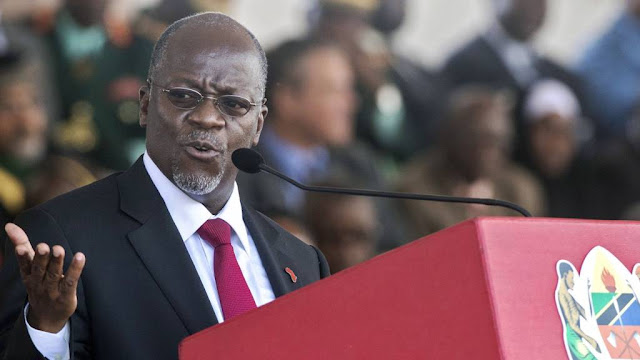President Magufuli assents to new law
President John Magufuli has assented to the Tanzania Meteorological Authority Act, 2018, thus giving a green light to the formulation of regulations to enforce the legislation passed by the National Assembly in January this year.
The new Act, which repeals the Tanzania Meteorological Act of 1978, gives more powers to the Tanzania Meteorological Authority (TMA) in the management, control, provision, coordination and regulation of meteorological services and importation of weather equipment by private institutions in the country.
Minister for Works, Transport and Communication Isack Kamwelwe said yesterday that after the President’s assent, the way forward was the formulation of regulations to put in effect the new law.
Mr Kamwelwe was officiating at TMA workers’ council in Dar es Salaam. Among other things, members of the council are expected to receive and deliberate on budget estimates for TMA for the 2019/20 financial year. "I have now tasked TMA, the Permanent Secretary and legal experts in my ministry to draft the regulations.
TMA should also start preparations for the enforcement of the new law," the minister explained when responding to questions from reporters.
"Weather reports are very crucial for the economy and thus we don't want such reports or equipment used to be compromised." In another development, Mr Kamwelwe hailed TMA experts for formulating computer software dubbed ‘Digital Meteorological Observatory (DMO)’ and urged the agency tocreate the software locally.
Earlier, TMA Director General, Dr Agnes Kijazi, informed the minister that the agency had continued making great strides, including improving accuracy in weather reports and upholding its standard ISO: 9001:2015 issued by the International Standard Organisation (ISO).
"Tanzania through TMA is among only three African countries, which are certified by ISO.
We have also managed to expand our network of weather equipment, including radar systems," Dr Kijazi informed the minister.
The country's top meteorologist, however, said the agency was still facing a shortage of equipment since it was required to phase out the ones using mercury as per requirements by the World Meteorological Organisation and the International Civil Aviation Authority (ICAO).
Given the dangers of mercury, ICAO and WMO have been urging countries to get rid of the substance and instead go digital by 2020.
Accuracy of weather forecasts by TMA has improved from 81 per cent in 2015 to 87 per cent by the end of last year, which is above the global allowed standards of 70 per cent.
TMA is a public agency responsible for the provision of meteorological services, weather forecasts in addition to climate services, warnings and advisories in the country

